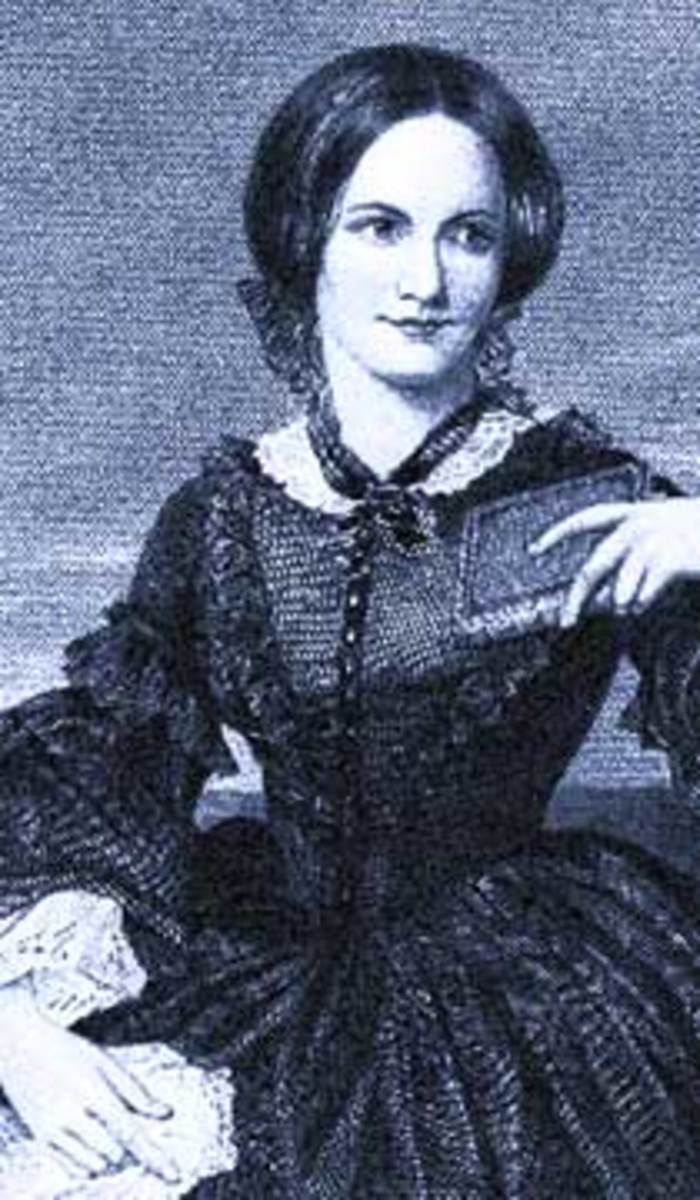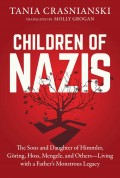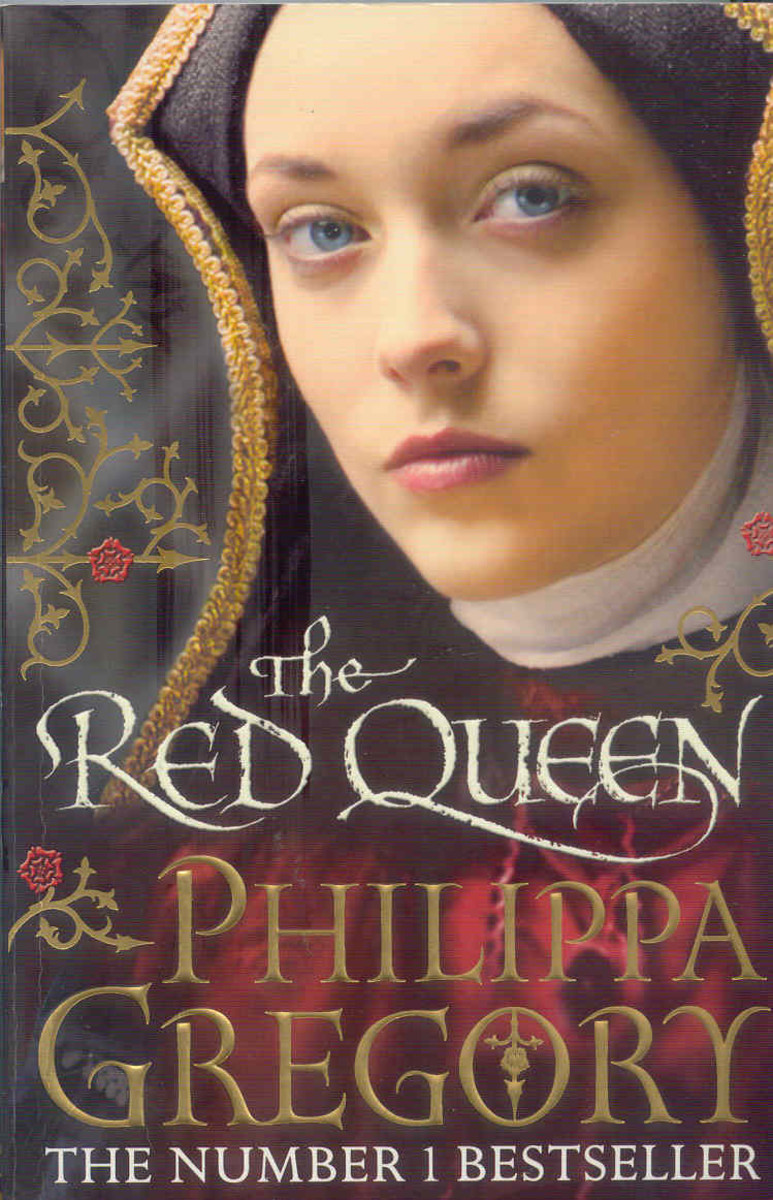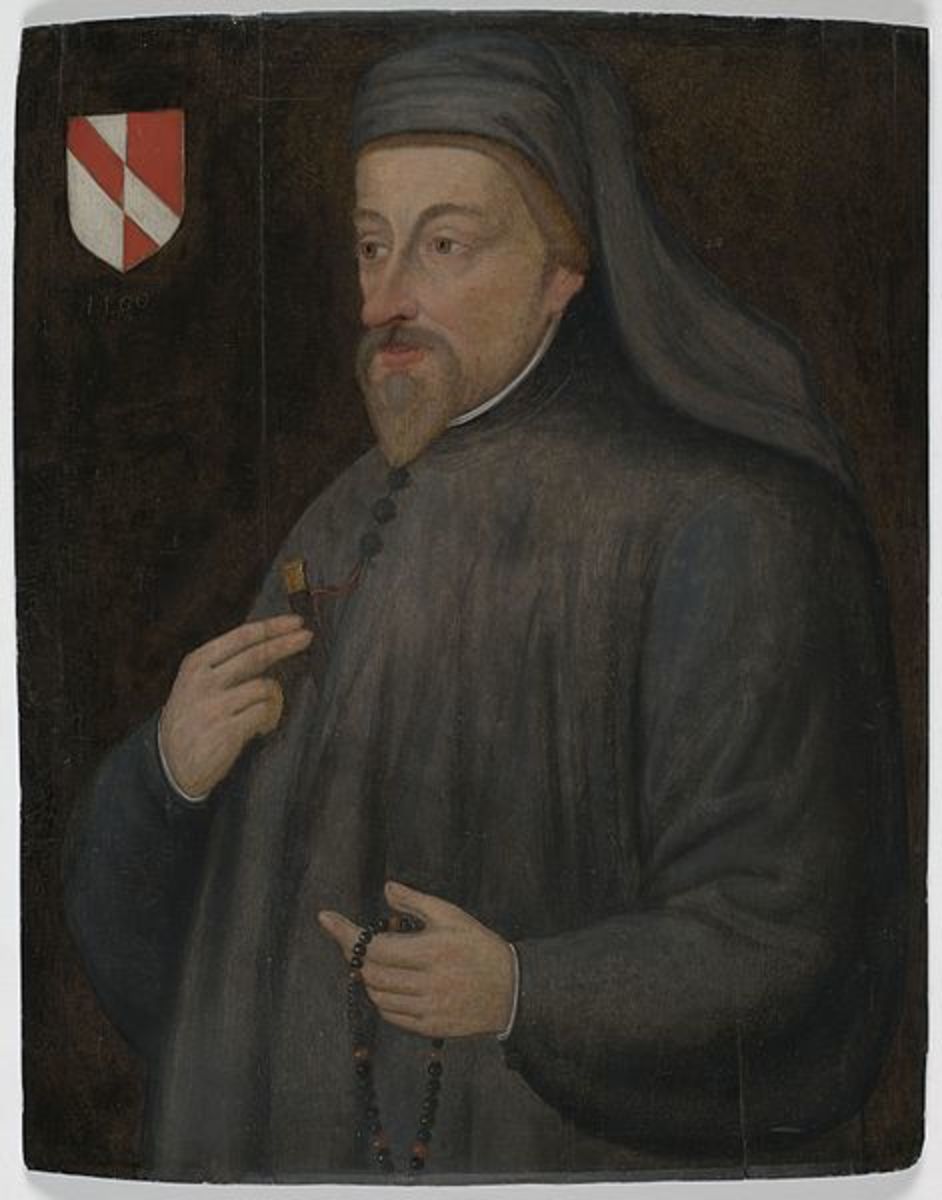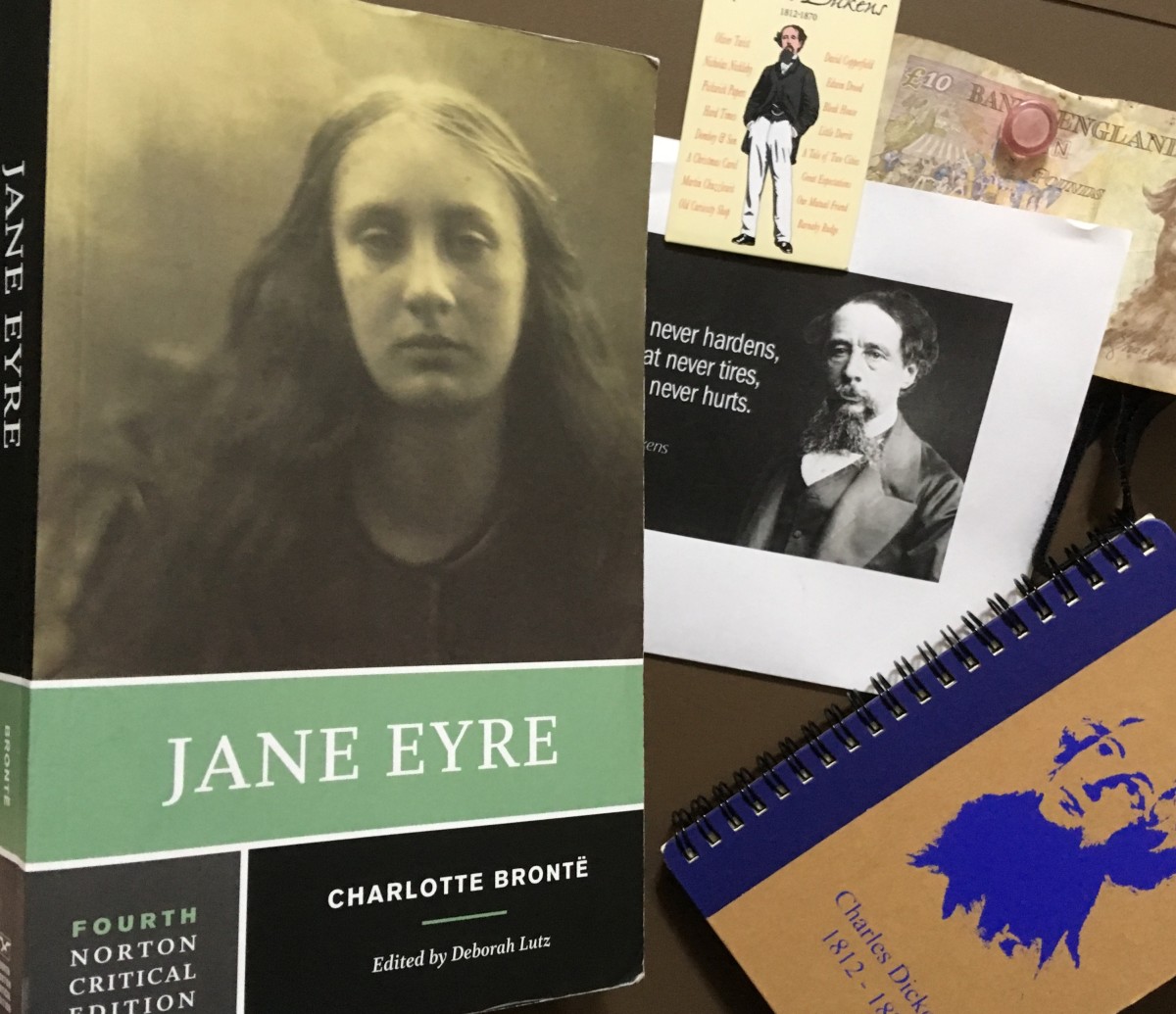Book Review of Howards End by E.M. Forster
Howards End by E.M. Forster was originally published in 1910. The novel is set in Edwardian England and deals with the conflicts between social classes, developing an overall theme of humanism.
As I read this book, I soon realized that Howards End, the estate of the Wilcox family, is hardly in the book at all. The house serves as mere bookends to the story, but it also serves as the symbol of what connects all the characters. The book opens up with Helen’s visit to Howards End. It is a brief beginning, but it sets the tone for the rest of the book. We know that Howards End is something important, but we’re not sure why. Most of the story takes place in London or at the Wilcoxes’ other residences, and Howards End is only mentioned occasionally. For the Schlegels, the house represents an embarrassing episode in which Helen Schlegel and Paul Wilcox were engaged for a single night. For the Wilcoxes, it represents the ancestral home of Mrs. Ruth Wilcox, who treats the house as a part of her being. She thinks of Howards End as something intangible and almost spiritual.
The novel is really about two different families whose actions are based on their presuppositions about life. These two families meet accidentally while touring Europe, and their lives are forever afterwards destined to be entwined.
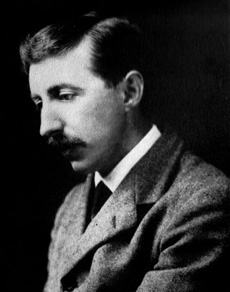
Two families. Two worlds of ideas.
The Schlegels are idealists. They dwell on the problems of the world and contrive solutions for them. However, they are rarely confronted with an occasion to put their ideas into practice. They live a comfortable, independent lifestyle, concentrating on the development of the inner man, and are removed to a certain extent from the real problems that they only talk about.
The Wilcoxes are plutocratic capitalists. They own several residences and don’t think twice about the impracticality of this. They are so removed from the lower classes, physically and socially, that they seem callous and arrogant. They could care less about anyone’s problems other than their own.
Stuck in between these two conflicting families are the Basts. They are poor, ignorant, and helpless. Their lifestyles have been less than honorable, but no one really cares, because the Basts have no social importance. They are left to wallow in their ignorance. The Schlegels, with some indirect help from the Wilcoxes, attempt to aid the Basts, to pull them out of the mire, but they only succeed in pushing them farther in.
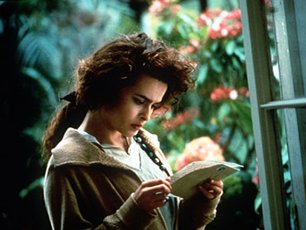
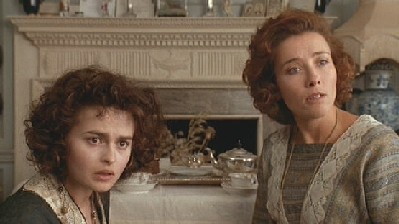
Family Schlegel
Margaret, oldest; Helen, middle; Tibby, youngest. Their parents have both died, leaving them independent.
Helen Schlegel is the most extreme idealist of the book. She has always lived in financial comfort and has had a lot of time to think about the state of the world and how she can improve it. Her early flirtation with Paul Wilcox shows her naïveté and impulsiveness. Impulse is Helen’s greatest force. She thinks a great deal when she is on her own, but when conflict arises, she acts quickly and thoughtlessly.
Tibby Schlegel, the youngest and only boy of the family, has probably been babied all his life. The feminine society of his sisters, as well as his lack of a father, has shaped Tibby into a self-centered, complacent character. He is satisfied with himself and cares nothing really about other people. His actions in the book are obscure. One really doesn’t know what Tibby does with his time before he goes to college. But whatever he is doing, he hardly notices anything that goes on around him. He is merely a prop on the stage until the book nears a close and his one proactive statement leads to a disastrous end.
Helen and Tibby are contrasted in chapter five. The Schlegels are at a performance of Beethoven’s Fifth Symphony. Helen is enraptured by the music. She imagines a whole story to go along, full of goblins and elephants and shipwrecks. She is so overcome by the ocean of music and the meanings it holds about life that she leaves in the middle of the concert, stealing a man’s umbrella by accident in the process. Tibby, on the other hand, sits through the entire performance with the musical score on his lap. His highest form of excitement is exhibited when he predicts the transitional passage on the drum, and he must let everyone around him know it is coming. He is impressed by the beating of one instrument and fails to hear the music as a whole.
Margaret Schlegel is the heroine of the story. She is also the most selfless, levelheaded one of the family. She acts from the purest motives. She is constantly caring for her brother, her sister, her aunt, her neighbor. And when she becomes engaged to Henry Wilcox, she recognizes him as her first priority. She is also just as much concerned about the fate of the ignorant and poor as Helen is, but with more practicality. When Margaret marries Henry, she marries realism.
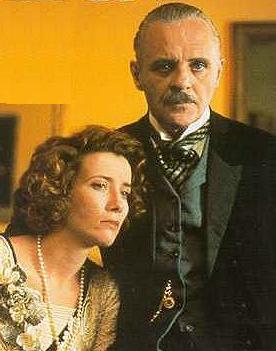
Family Wilcox
Henry and Ruth; their children Charles, Evie, and Paul
Ruth Wilcox is an eccentric. She has a mysterious, evanescent quality about her. We see her always as she is walking through her garden at Howards End: the shadows veiling her eyes, the breeze ruffling her ethereal dress. She is out of place when not at the home of her ancestors; she hates London. The last few months of her life, she is frail and sickly, but no one sees the reality of this until she dies. Margaret becomes an intimate friend of Ruth’s in those few months, and Ruth prophetically writes a note on her deathbed leaving Howards End to her.
Henry Wilcox is sturdy, confident, and practical. He lacks imagination and sees the world through facts. He loves his family for the mere fact that they are his family. He loves his wife Ruth, but she dies. He loves Margaret because he loves companionship. He seems to be a steady respectable character, though short-sighted. His greatest fault is his failure to connect with other people. He accepts forgiveness for himself but does not forgive others who have sinned in kind. Although he is characterized by his lack of sensitivity, Henry has a changeable heart and he gradually becomes the hero of the story.
Charles Wilcox is like his father in his belief in his own stability and self-sufficiency. Charles is a very dislikable character and not much can be said of him. He has all his father’s faults, but not his father’s ability to change. When confronted with the tragedy caused by his own hands, Charles merely states “Get some water” and “Awful business!”
Evie Wilcox takes after her father as well. She is selfish and satisfied with her place in society. She marries well, and starts her own life freed from the heritage of Howards End.
Paul Wilcox is barely in the story at all, yet his brief actions in the beginning of the book are what spark the conflict between the Wilcoxes and Schlegels. Paul is weak and inactive, practically meaningless to the story. He is off fighting someone else’s war the entire book and comes back in the last chapter to speak about three lines.
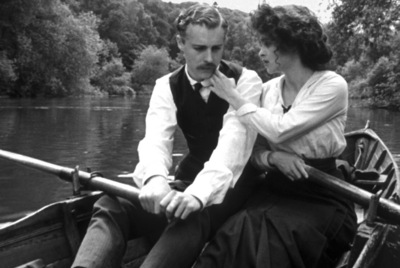
Family Bast
Leonard and Jacky
And now we come to Leonard Bast, the owner of the stolen umbrella. The Schlegels do more than just steal his umbrella, they capture his mind and hold it for ransom. Leonard represents the lower-middle class. He is the kind of person who dreams of a higher life, but who is unable, by nature and by social inhibitions, to accomplish his dreams. He reads books and books but doesn’t know how to help himself out of his financial and social predicament. He is stuck: stuck between two worlds, between two families, between two ideas. We see the core of Leonard’s being when he describes the night of his solitary walk. He decided on impulse to walk through a whole night to “get back to the Earth,” getting the idea out of a book. Unfortunately, although Leonard realized the importance of getting out into the world to experience things as an individual, he comes out of the experience with only hunger, fatigue, and boredom. He is faced with a world of ideas and dreams and beauty, but he somehow cannot reach it. He can only watch.
Jacky is a woman of unsound reputation who married a man of much less experience and fewer years than herself. She, like her husband, is stuck in the lower class. But unlike Leonard, she doesn’t know the difference and doesn’t care. She is an important character though, because she is the anchor to her husband’s futility and the representation of Henry Wilcox’s past sin.
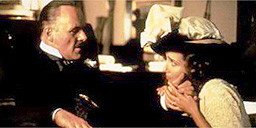
In Conlcusion
When the Schlegels and Wilcoxes are finally united in the last chapter at Howards End, we finally see the reconciliation of intellect with action. Both families failed in their attempts to help the Basts, but through their love and forgiveness of each other, they find the ability to love Leonard’s son. And Leonard’s son is the eventual inheritor of Howards End.
“Only connect! ...Only connect the prose and the passion, and both will be exalted, and human love will be seen at its height.” This proves to be the theme of Howards End. Forster’s belief in humanism is portrayed through the characters’ ability to accomplish connection through brotherly love. A human ability to overcome obstacles is exalted. Forster failed to see that it is God’s love that teaches us to love each other.
So what does Howards End represent? The house is the steady, unchanging force of the book. Maybe it represents Tradition. This is doubtful, since the novel is very critical of social mores. Maybe it represents the timelessness of brotherly love. No matter how we live, the important things of life end up being (besides our relationship with God) our relationships with other people. The Bible says that if we have all knowledge, but do not have love, we are like clanging cymbals. All noise, no action. If we are content to live in comfort and complacency and if we neglect to love others through our actions, we are useless. “Only connect the prose and the passion...”
Read about more great English literature
- Book Review and Analysis of The Remains of the Day b...
Kazuo Ishiguro's book The Remains of the Day is a modern classic retelling the days of post-War England. Through the eyes of a butler, the decline of the aristocracy is told with heartfelt understanding and complex beauty. - Truth in the Tragedy: King Lear
This play is about true vision.Those characters one would suppose are blind are the ones who see best; and those who have no physical blindness really cannot see a thing. In ancient Britain, when kingdoms... - Margaret Hale, The Heroine of North and South
One of the strongest female characters in English literature is Margaret Hale, the heroine of North and South, written by Elizabeth Gaskell. She may not have the wit of an Elizabeth Bennet, nor the... - Clouds in a Tumbler: a Literary Analysis of Jane Eyre
There was no possibility of taking a walk that day. We had been wandering, indeed, in the leafless shrubbery an hour in the morning; but since dinner... the cold winter wind had brought with it clouds so... - Book Review of The Professor, by Charlotte Bronte (Author of Jane Eyre)
Though readers all over the world have enjoyed Jane Eyre by Charlotte Bronte, many have not had the privilege of being exposed to her lesser-known novel, The Professor, which is deeply revealing in its depths...




